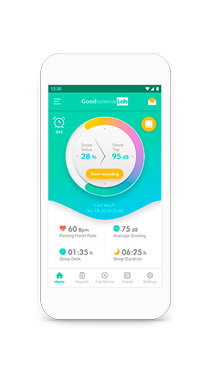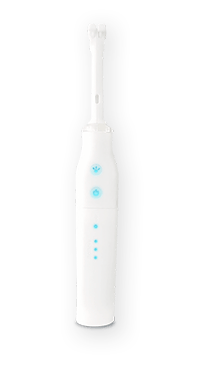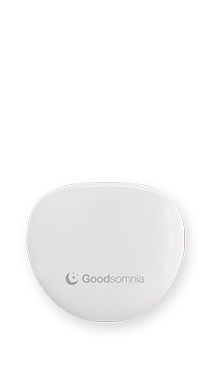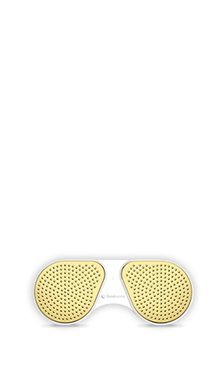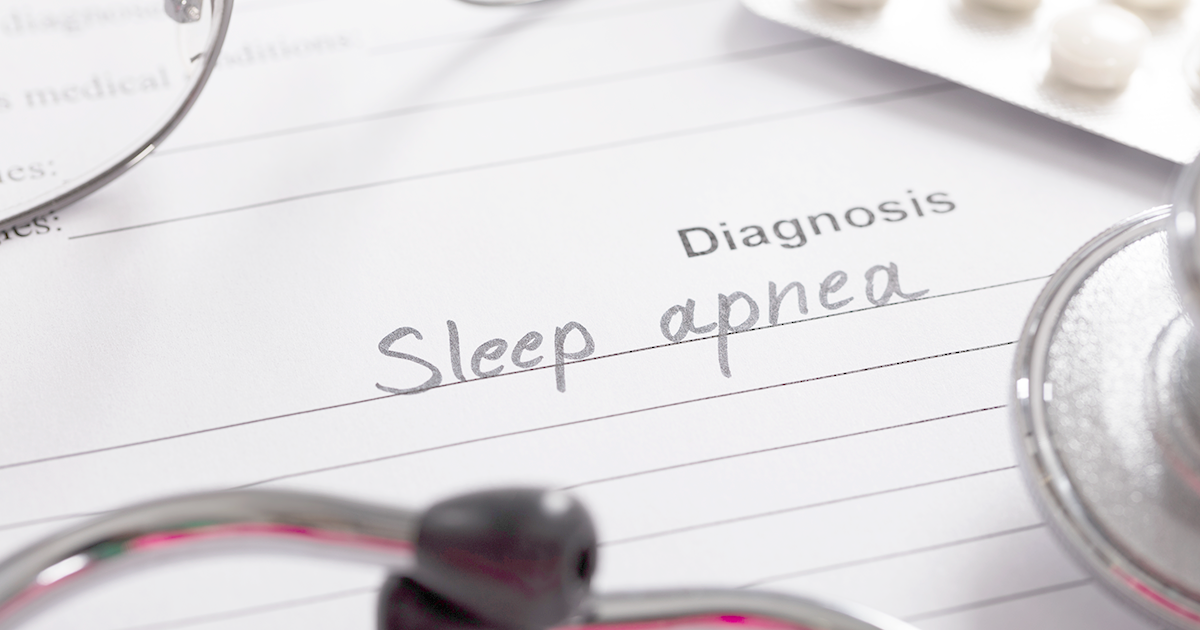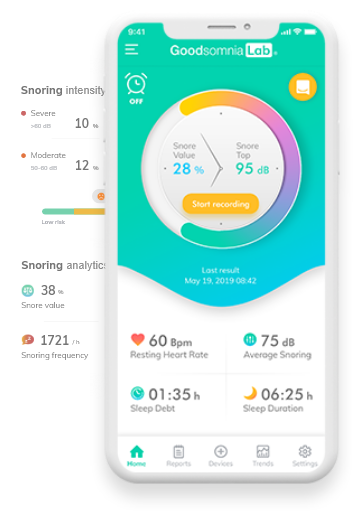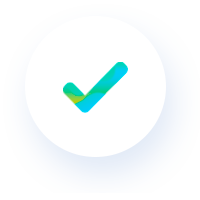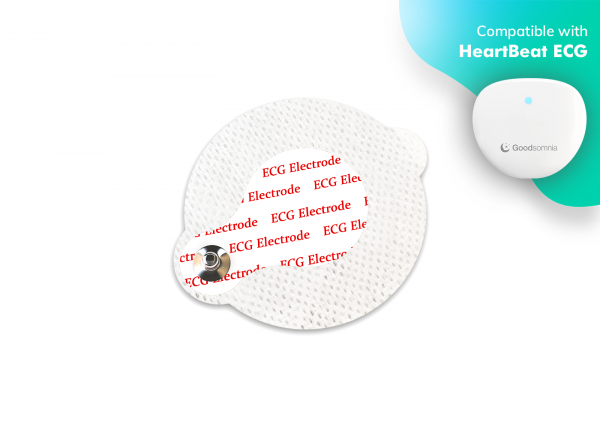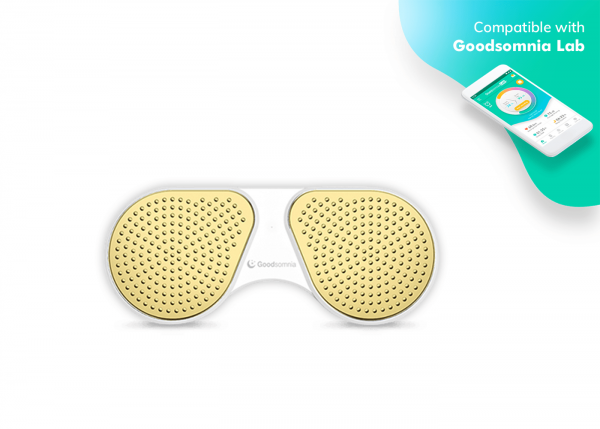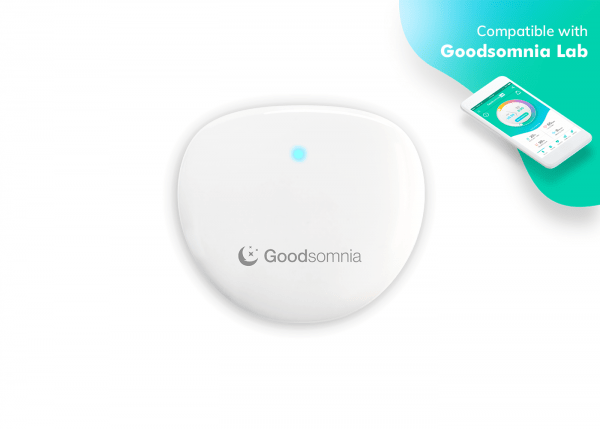Not everyone who snores has sleep apnea. Before that sigh of relief, a glass of wine and celebrate, let’s dig deeper. It’s proved that about 40% of adult men and 24% of adult women snore out of habit but what is the line between a habitual snore and a disease? To help you quickly detect signs and symptoms of sleep apnea and take action, here’s an explanation of what causes sleep apnea, symptoms and what to do for sleep apnea and snoring.
What are the main symptoms of sleep apnea
The first thing associated with sleep apnea is snoring. Most people consider snoring as the main symptom of sleep apnea but even if you snore it doesn’t mean you have sleep apnea. To understand the nature of a disease, let’s figure out what is snoring.
Snoring is a sound of vibrated tissues. When you breath the air goes through the back of the throat and can produce that sound. No matter, whether you breathe through the mouth or nose, snoring can occur in any case.
The key thing is to know what is not a symptom of sleep apnea and what is. You may snore and don’t have sleep apnea if you sleep on your back, drink alcohol or other depressants as it relaxes throat muscles. Also cold and allergies may cause snoring but don’t lead to sleep apnea. If you snore lightly and rarely, this isn’t a reason to worry.
The time for worrying comes when you start to snore loud and often. The sound may become harsh and hoarse. Here are the symptoms and possible causes of insomnia and sleep apnea:
- sore or dry throat in the morning
- choking and gasping sensation after sleep
- lack of energy during a day
- morning headache
- forgetfulness, decreased interest in sex
These are the first triggers of sleep disorder that you should pay attention to. Obstructive sleep apnea, which is one of two forms of sleep apnea, is less dangerous. The symptoms of central sleep apnea demand urgent medical treatment as the problem is lack of air to the brain during sleep.
Does everyone with sleep apnea snore?
The question what are the symptoms of obstructive sleep apnea and what aren’t is clear. Here’s how to spot sleep apnea snoring. We’ve already answered the question “Does everyone who snore have sleep apnea?”. On the one hand, it’s great that snoring doesn’t lead directly to sleep apnea but on the other it becomes a challenge to detect a sleep apnea snoring. There are three sleep apnea snoring signals that we can’t ignore.
- Loud snoring. Snoring extremely loud increases chances of being associated with OSA
- “If I snore do I have sleep apnea?” isn’t the question, because the thing is consistency. It’s better to ask your doctor “If I snore every night do I have sleep apnea?”
- The nature of a sound. The regular, loud snoring that is interrupted by choking sounds and gasps may suggest something more serious.
Surely, it’s difficult to evaluate your own “snoring style”. Some people don’t even notice they snore but we are all good at noticing others snoring. So ask your partner or family members “Whether I snore, do I have sleep apnea?” may be a good idea to get to know the truth. Another solution is to try a snore detection mobile app which allows you to record snoring sounds, detect and analyse them.
How to help sleep apnea naturally
Treatment of sleep apnea depends on the main cause and will differ from person to person. If a person is overweight, losing weight is the answer. If an inappropriate sleep position is a problem, the treatment is position therapy.
Though OSA is a serious sleep disorder there are some methods on how to help central sleep apnea without medical involvement. Most of them are connected with daily routine changes, such as avoiding alcohol, bad food habits, sport activities or changing sleep position. Help with sleep apnea can vary and there’s no perfect treatment that suits everyone. Consulting a doctor and tracking any changes is a must. If snoring was detected in the early stage natural treatment may be effective. The importance of sleep apnea treatment is detecting it in time to prevent serious consequences.

